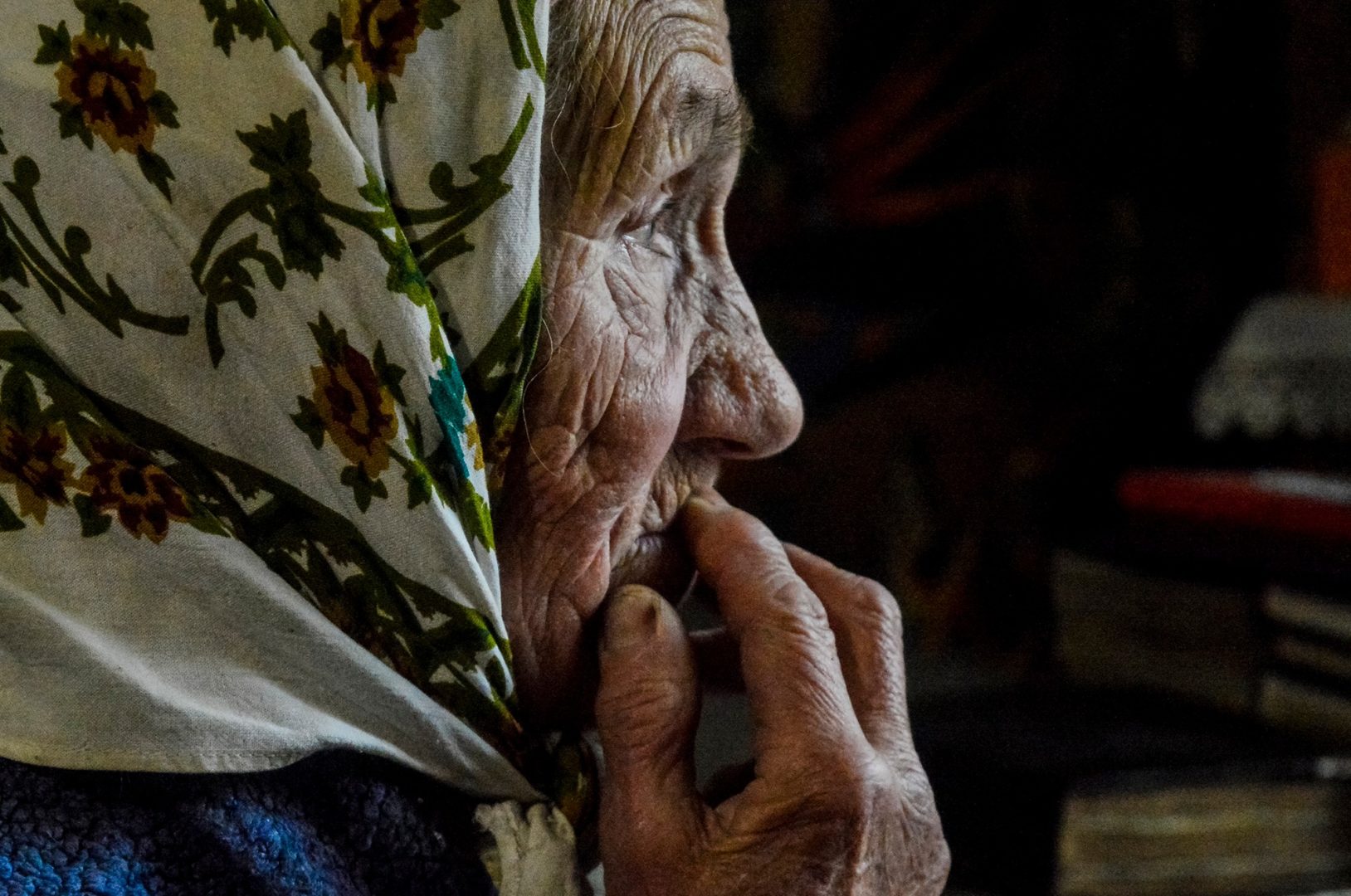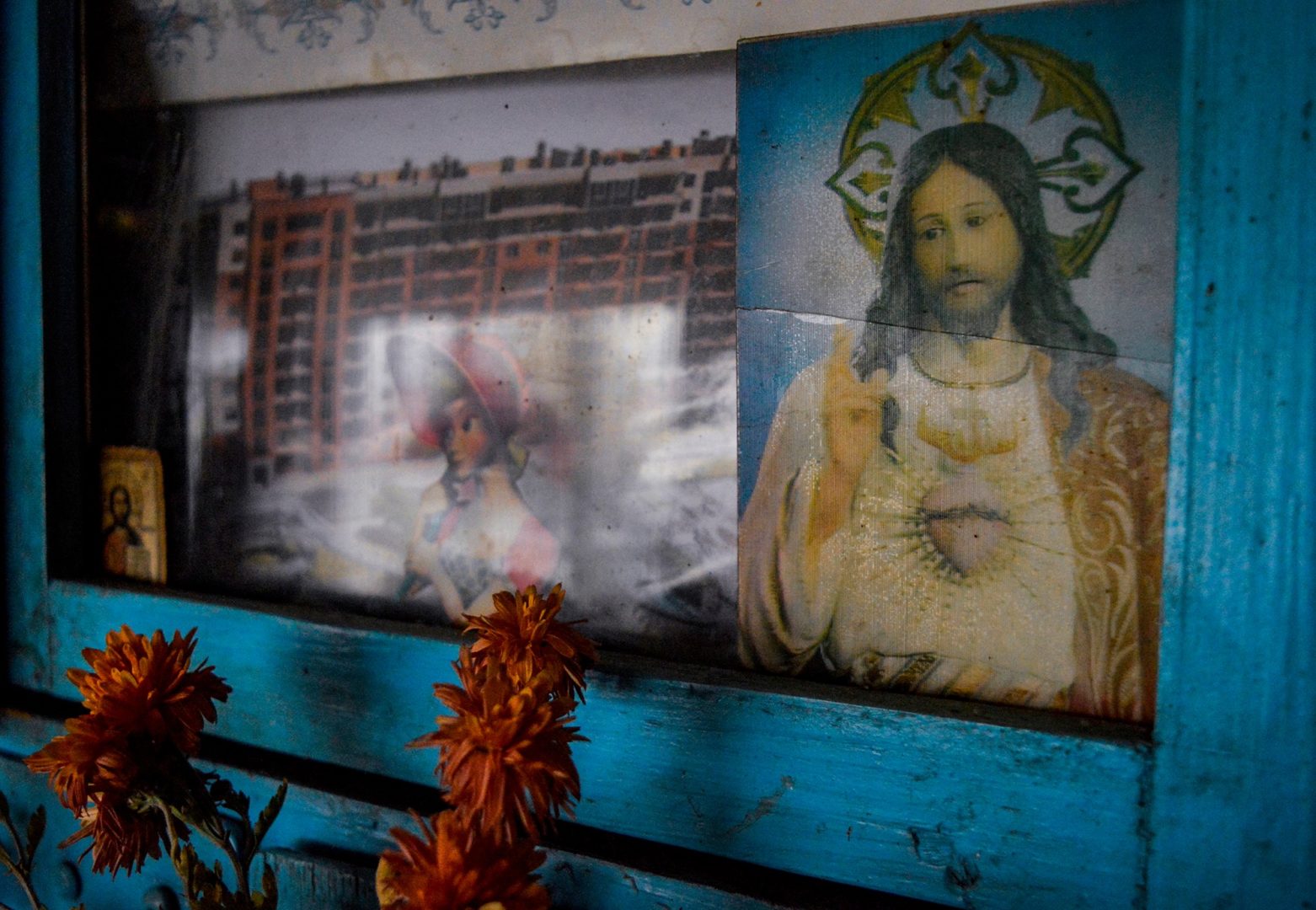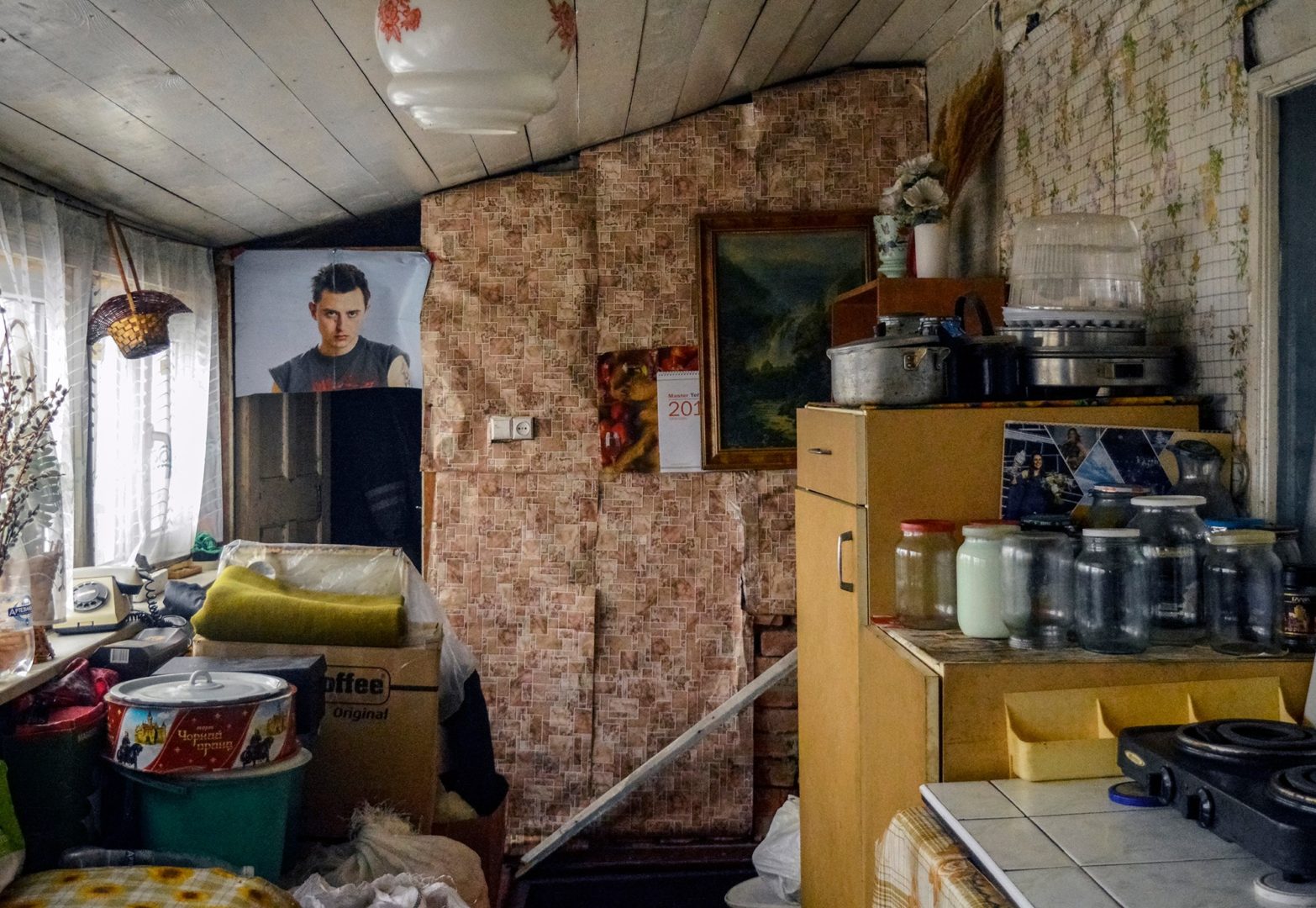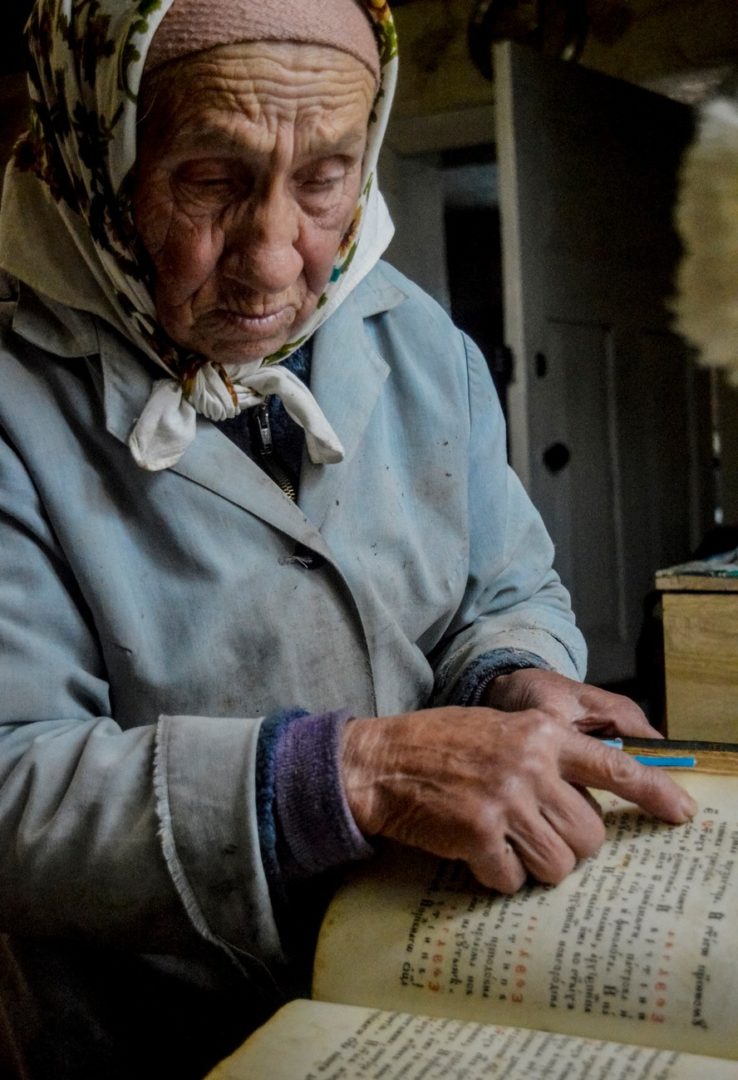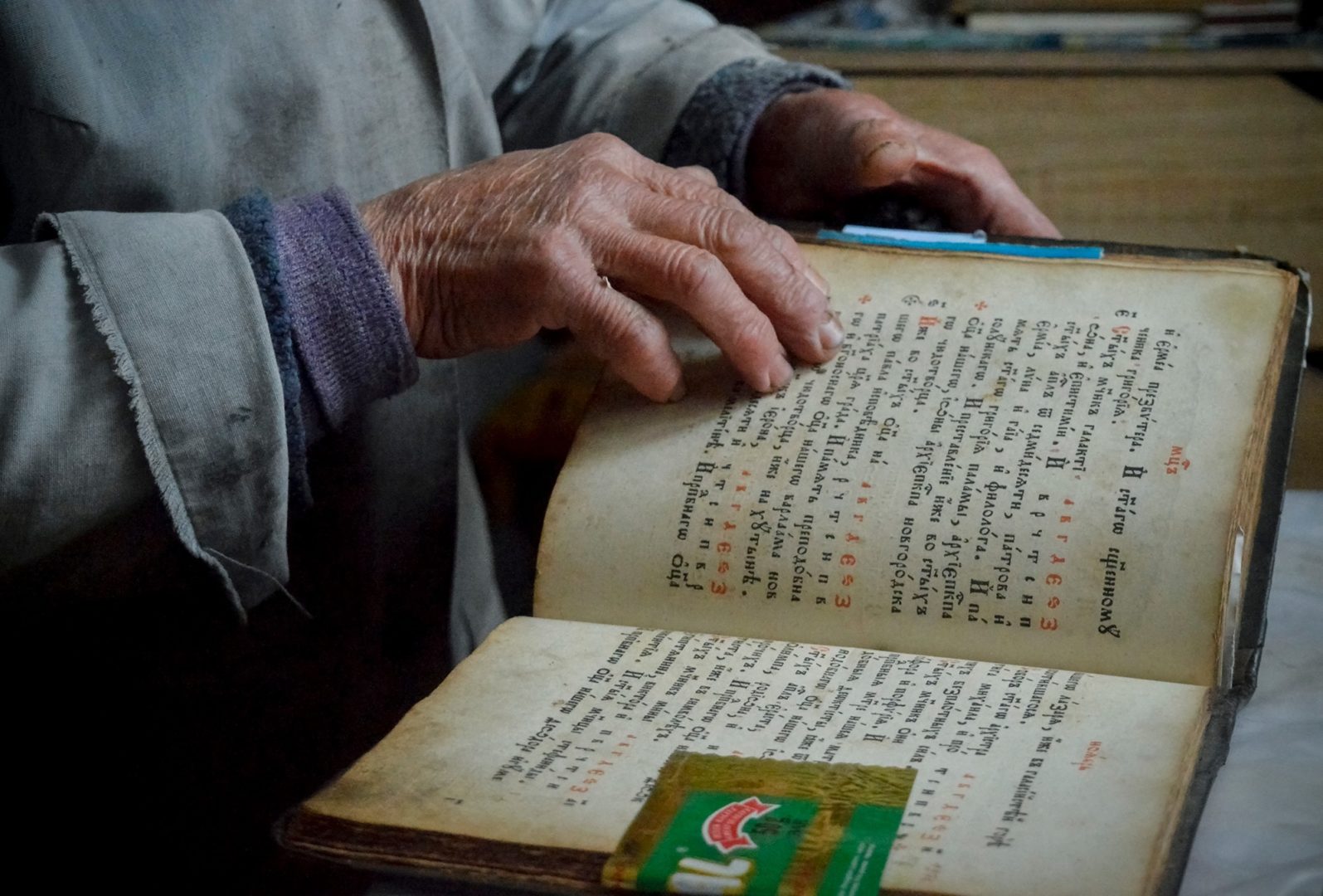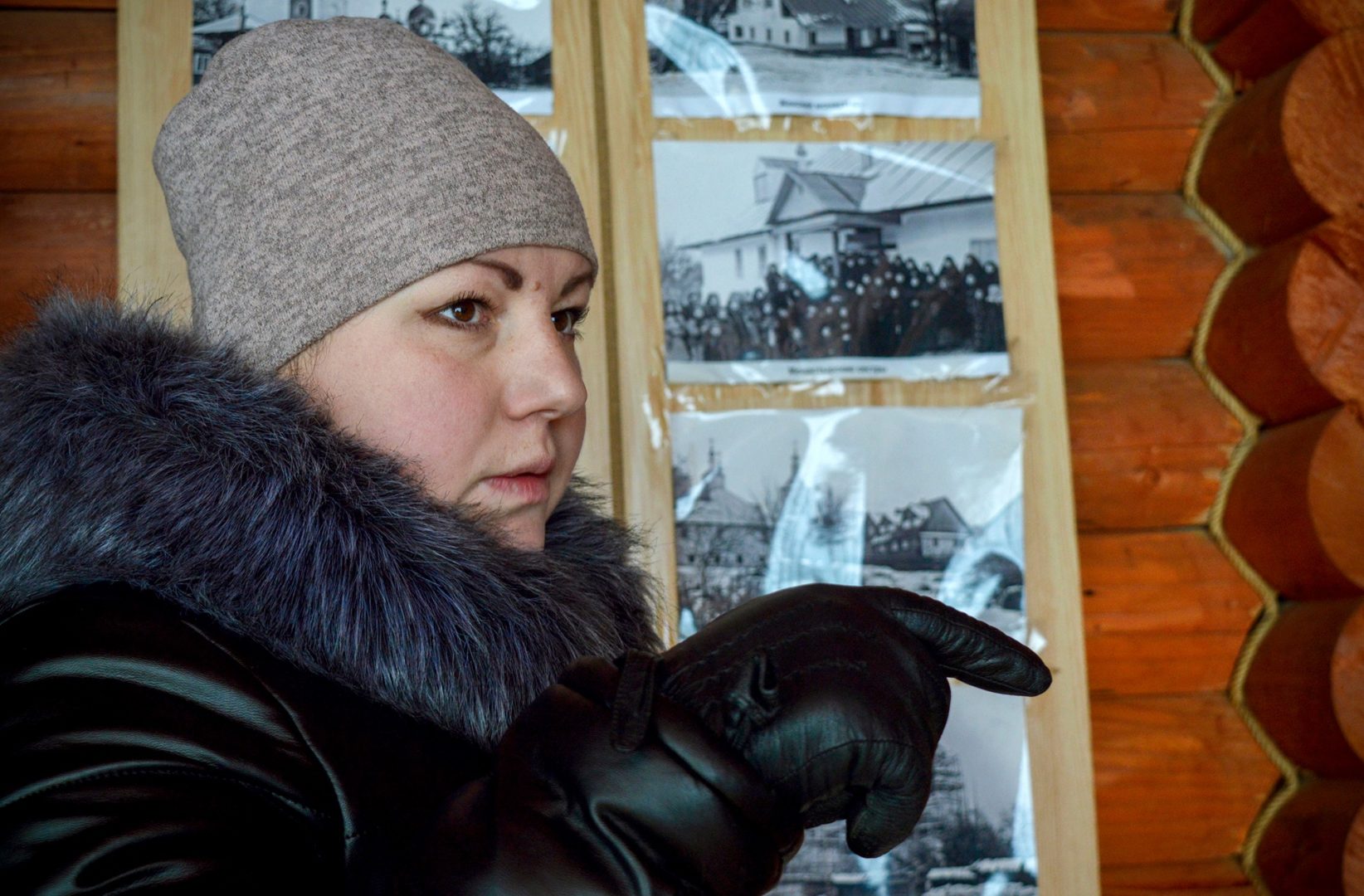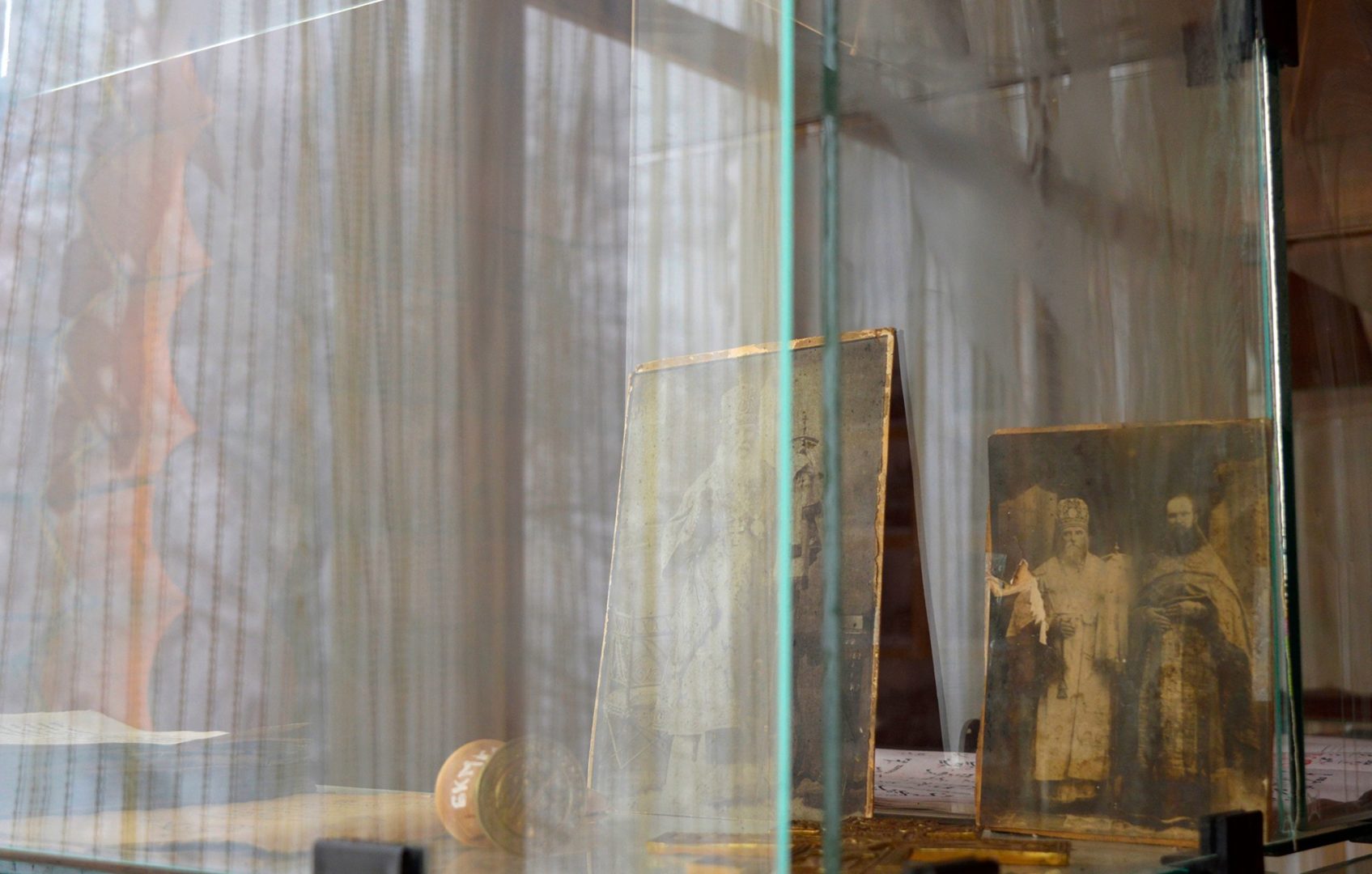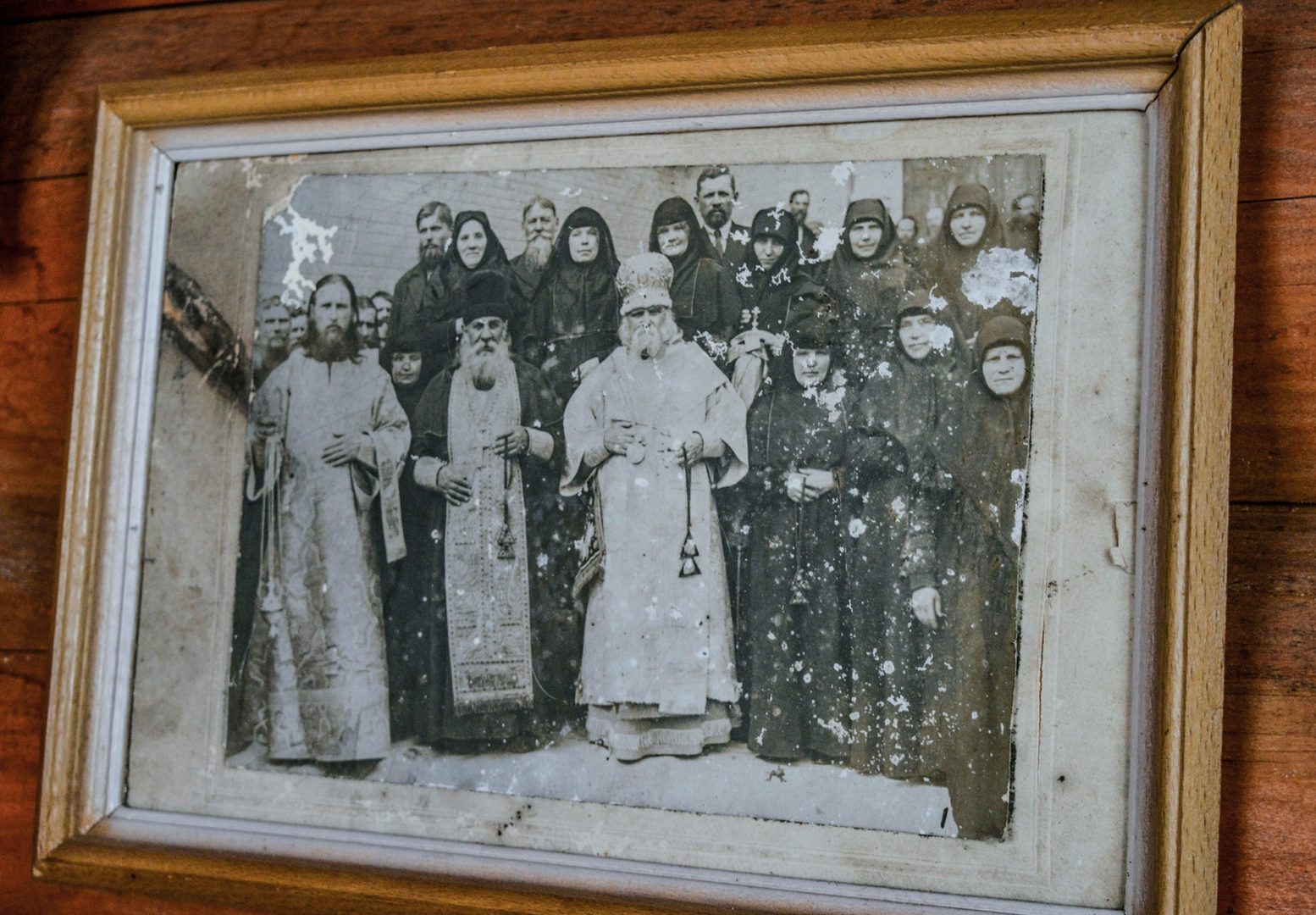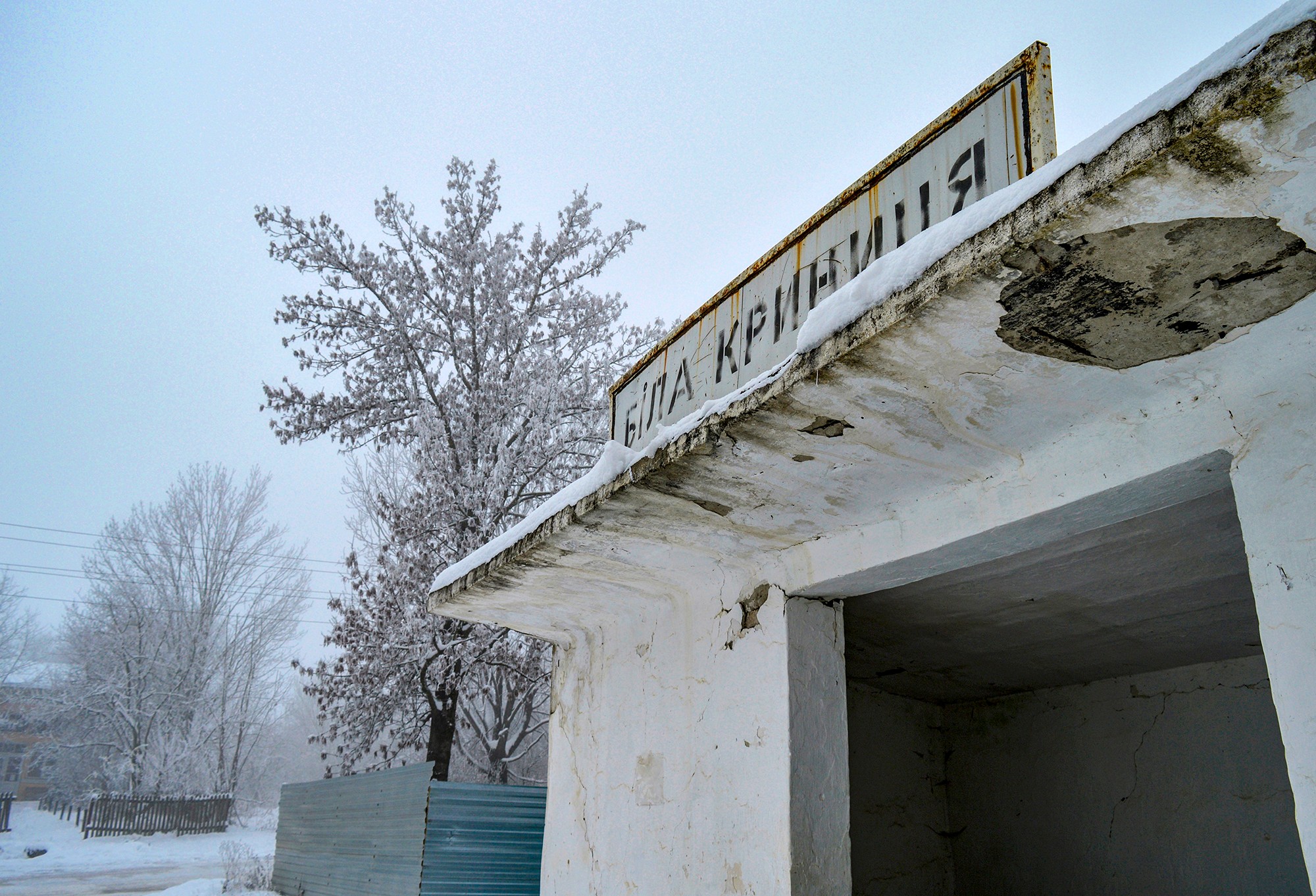
God Save Us All from Outsiders
If you imagine a dead silence, it will be just like Bila Krynytsia. The village is on the border with Romania in the Chernivtsi region. It is a settlement of Old Believers who are not afraid of dead silence, for they believe in salvation.
Bila Krynytsia used to be the center of Old Believers for all of Ukraine: about three thousand people lived here and there were three active churches and two monasteries. Now, only a few locals attend church services, and the clergy make up one fifth of all residents. It would be absolutely quiet here if not for the arguments about who should have the keys to the temple.
A Religion with No People
“God won’t forgive me if I let you in.”
To open the door, she had to stop praying. Letting a stranger inside was not on her schedule for today. The day in no way differed from the previous one and would hardly differ from the next. From 5:00 to 9:00 am she had morning prayers, psalms in the afternoon, and righteous canons in the evening. She had to pray for peace as well. Could I return later? She would not miss the evening service from Saturday into Sunday for the sake of conversation; God wouldn’t forgive her.
“Are you baptised?”
“Yeah, I guess,” I reply.
We are standing in the doorway of Ustymia Puzankova’s house. She is one of the few Old Believers in Bila Krynytsia today.
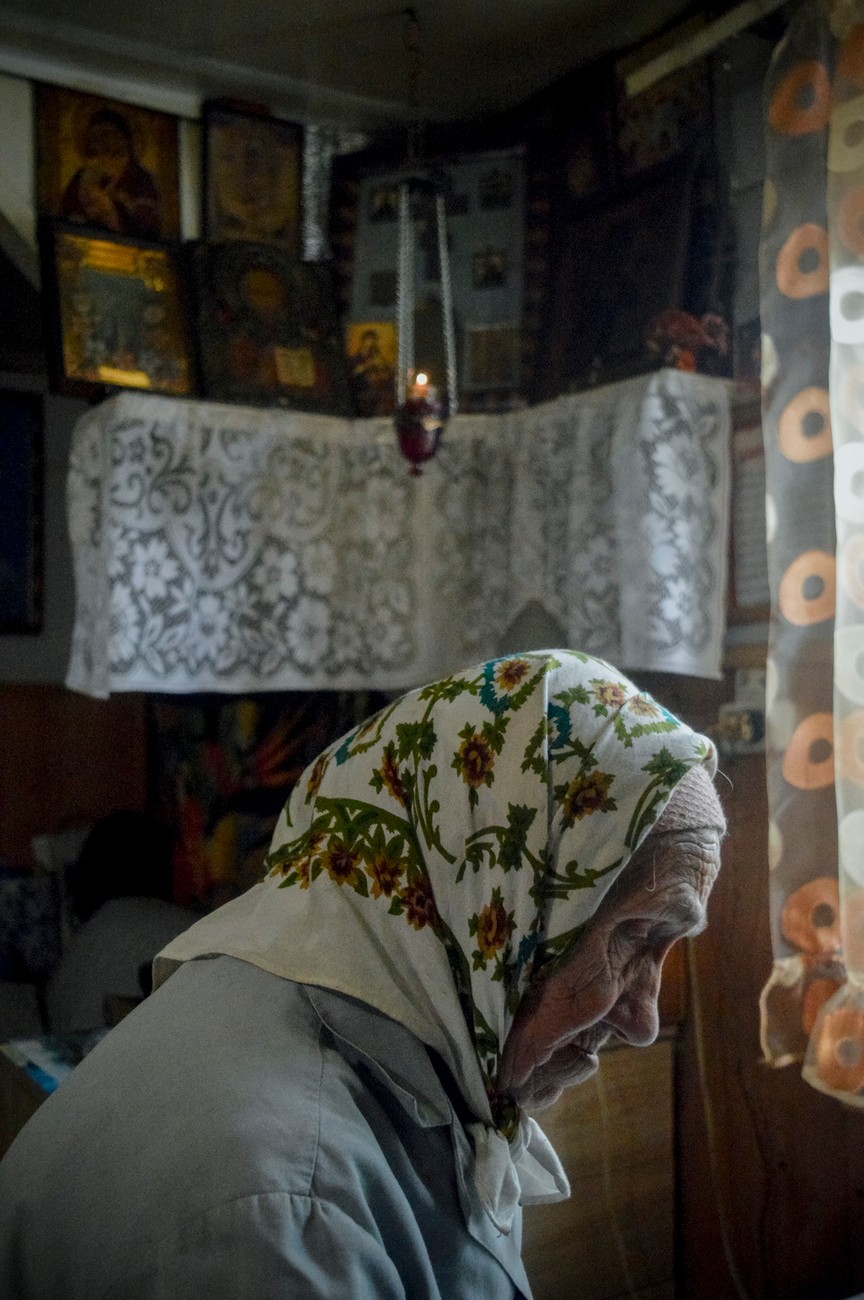
“Were you dunked in water three times or simply sprinkled with it?” Of course they sprinkled you.You’re Orthodox. Know that’s not baptism. Getting dunked thrice and anointed—that’s baptism!”
It seemed the baptism I experienced more than twenty years ago could now keep me from learning more about people who were baptised another way with the necessary dunk into water. Ustymia is irritated: she can’t leave me outside in the freezing cold, but at the same time she doesn’t want to let me inside, for she would like to continue her prayers. Eventually, she invites me in and offers me some tea.
“Thank you!” I tell her. Either for the tea or simply for letting me in.
“No ‘thank yous’ in my house! If you really want to thank me, you must say ‘Christ save you!’”
Ustymia puts the kettle on the stove. Old Believers prefer to cook over wood-fired stoves. Earlier they completely abstained from electricity and gas. Now they are gradually abandoning these strict rules. Ustymia brews a tea with quince. She says it is healthier and you don’t have to add as much sugar. She warms up her vocal chords with tea. During evening services she sings in the kliros, that is, the church choir. She stands on her feet for the entire four-hour service, even though she says they ache.
If it’s possible to seem lonely in a village of 48 people, she certainly does. The husband she lived with for 57 years has died. Her daughter lives in Chernivtsi with her own family. But Ustymia assures me she will return to Bila Krynytsia soon, for it is calm here.
Ustymia has been serving in church for 31 years already. Her mother served for 33 years by making communion bread. Her grandfathers built the local Assumption Cathedral. So she says there’s nothing for her outside of Bila Krynytsia. But life here is only scarcely flickering.
“There’s religion, but there are no people,” she sighs.
Tourists used to visit Bila Krynytsia more often. They stopped, however, and not only because of the bus, or rather its absence. Up until recently, tourists could enter all the churches here. Yet not only did it interfere with the Old Believers’ holding services, but the outsiders made them uneasy. So they re-elected church officers, gave the keys to the temple to the mother superior, and stopped bringing in tourists.
Ustymia wants a bus that would take locals to Chernivtsi and back, but not bring in outsiders.
There Are People but Nothing for Them
A crooked green cross marks the entrance to the village. Half-collapsing houses stand locked up along the road. There are also well-kept village houses here and there. The odd person stands near some of them. Each Saturday, a driver from the neighboring Bahranivka delivers food: cereals, oil, sugar, and beer. Bread is delivered twice a week—on Mondays and Fridays. They say it would be unprofitable to open a store here. Old Believers observe all fasts and in additional eat no meat, milk, or eggs on Wednesdays and Fridays for the entire year.
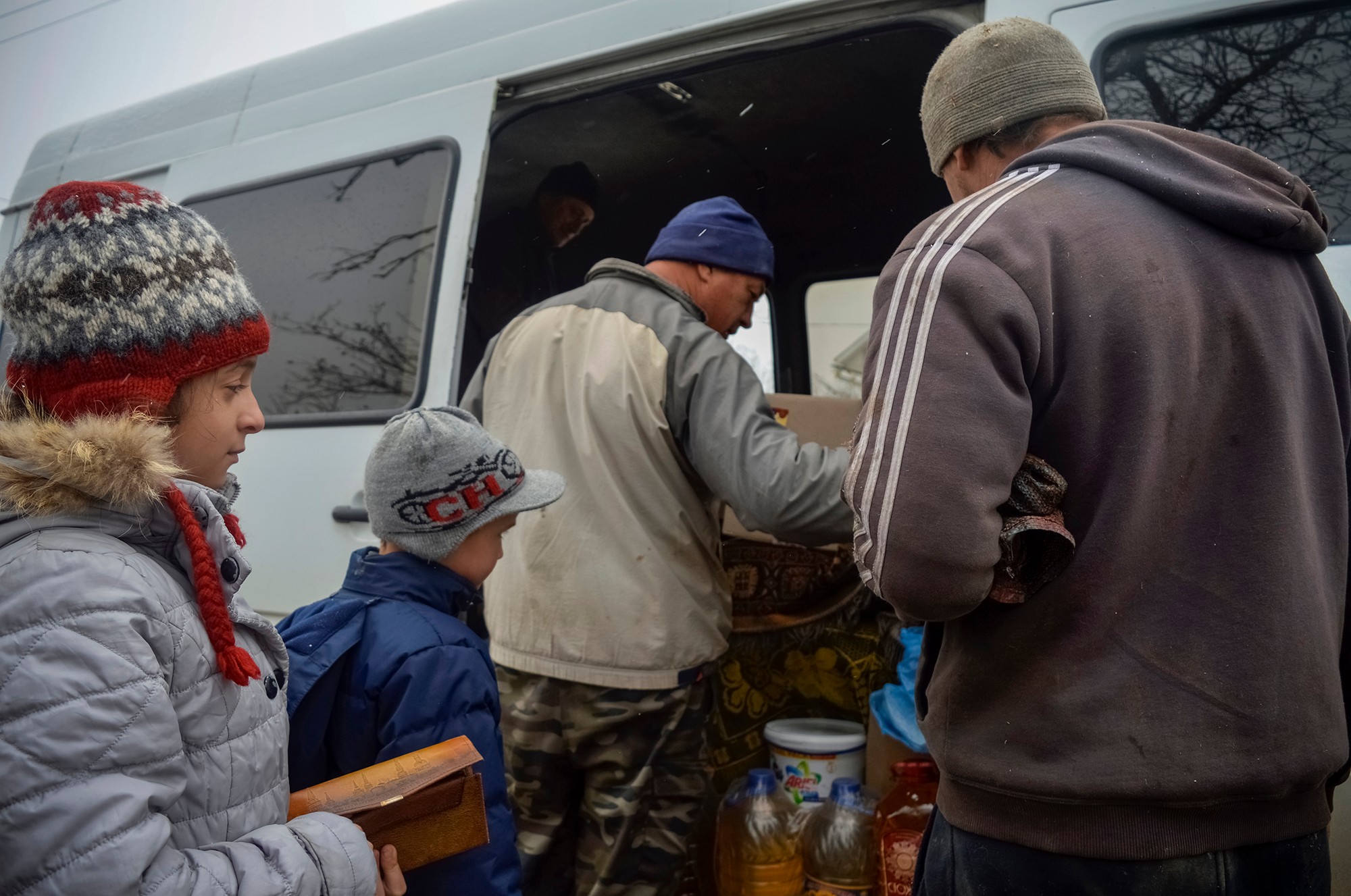
“You don’t need to take my picture,” Anna says.
“I need to show that there are people here.”
“I have a broken tooth and there’s no way to get to a dentist. Don’t take my picture without a tooth.”
A doctor comes to the village on Mondays, Wednesdays, and Fridays. Only the school bus comes every day. The children that are left here—and there’s no more than ten of them—attend school in the neighboring village.
There used to be more people here. A portion of the Christians in the Tsardom of Muscovy who stood up to the official Orthodox Church that was to be unified with the Greek rite in the mid-17th century resettled in Bukovyna. They objected to corrections to the Old Slavonic texts and changes to the rituals. The Old Believers’ ancestors or, as they are also called, the Lipovans (from the Church Slavonic word lipa, or “linden”), founded Bila Krynytsia with the permission of the Austrian government. There is a legend that Old Believers fleeing religious intolerance in Moscow hid themselves in linden forests and drew their icons on linden boards. Local Old Believers are popovtsi, meaning they have priests and recognize the sacraments. A few kilometers from here on the other side of the Romanian border you find bezpopovtsi, Old Believers who do not recognize priests.
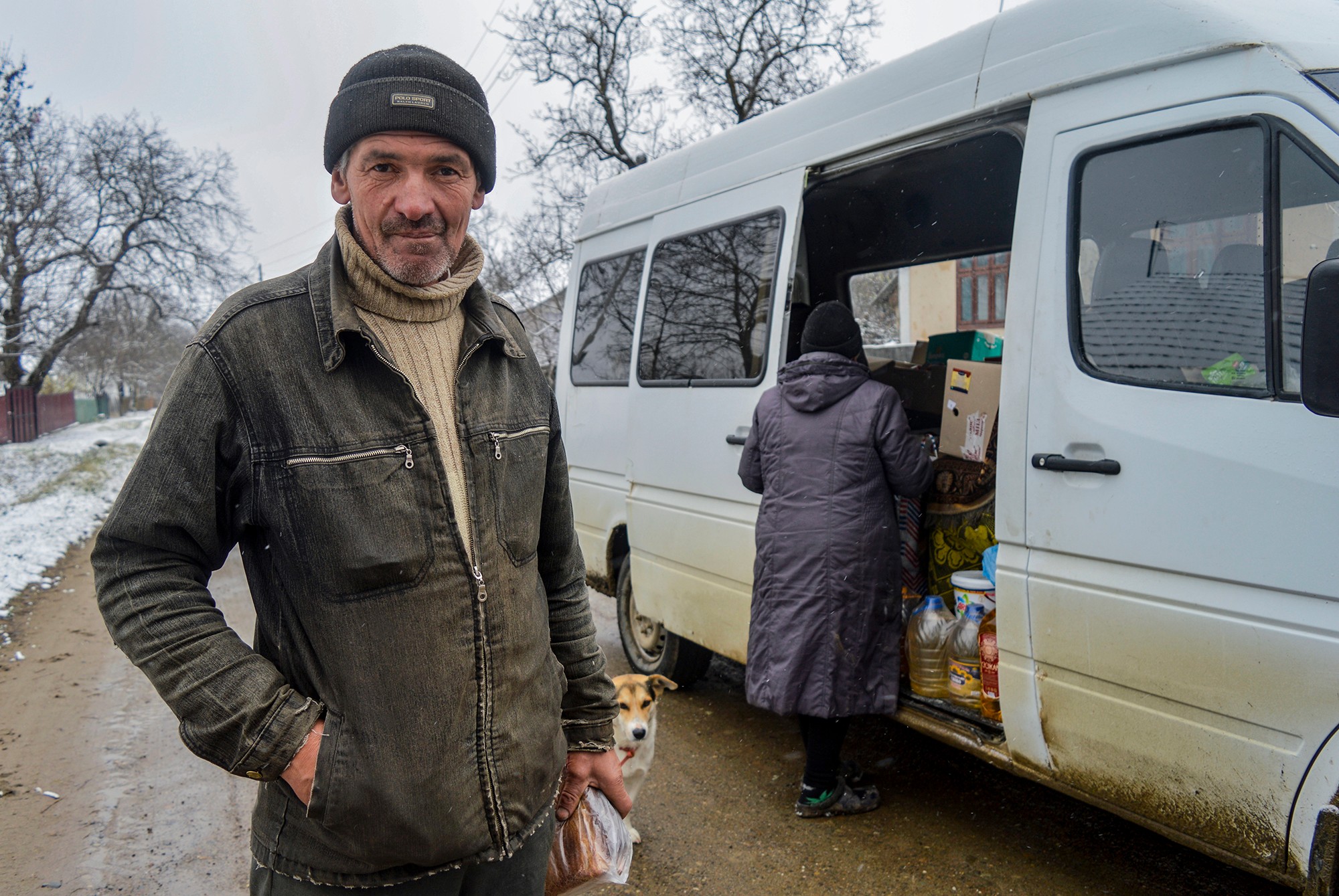
There were times when the village had about three thousand residents. People speak Russian here, just like they always have. It is a common practice among Old Believers to wear clothes in the ancient style of Kyiv Rus. Women dress in sarafans and headscarves; men belt their shirts and grow out their beards.
In reality, only very few of them really look like that now.
The men shave and the kids wear jeans.
There Is a Temple, but No Tourists
Bila Krynytsia hasn’t disappeared. It can’t disappear, owing at least to the Assumption Cathedral. Orthodox and majestic. It seems like the Cathedral holds everything together here—the two other churches, the houses, and the people.
During the Soviet era the Cathedral was named a nationally significant architectural monument and the state had to protect it. However, the Cathedral is not included in Ukraine’s new registry of significant landmarks. Nevertheless, Oksana Diadiushka believes it’s still interesting for tourists. She is precisely that sole deputy in the village, as well as the director and only employee of a national Old Believers museum in Bila Krynytsia.
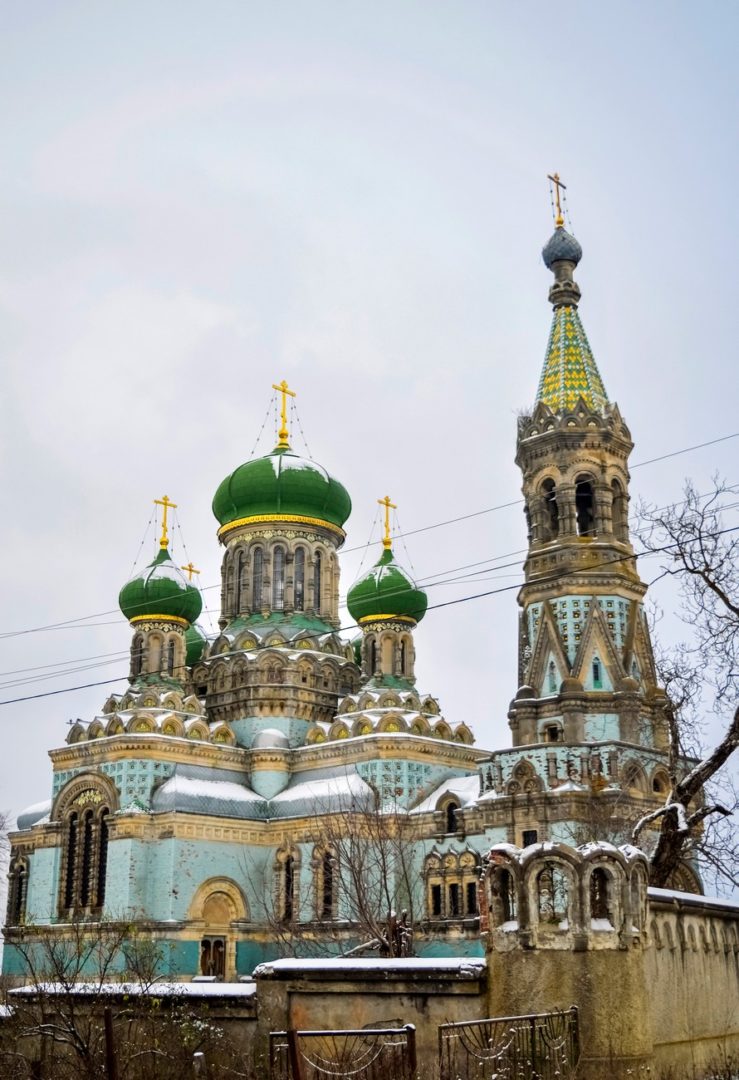
“Our Old Believers say they don’t want to be stared at like chimpanzees. But it is difficult to explain to tourists that I can’t take them to the Cathedral because I’m not a church official.”
One can go inside the Assumption Cathedral in summer after getting approval from a priest who doesn’t live in Bila Krynytsia all the time. It is forbidden to enter the Cathedral during services without prior notification.
Oksana Diadiushka became the museum director seven years ago. It was built with a grant, and the exhibition pieces were collected from people’s attics. It includes several old pictures, some household items, a small collection of books on Lipovans, and that’s all. She can’t show me, or the other tourists, anything more. The museum has no alarm system, so no valuable objects are kept here; they are all kept in the regional museum in Chernivtsi.
Oksana moved to Bila Krynytsia from Donetsk in 2007. She married a local man. It is only acceptable for Old Believers to marry within their community, so Oksana was baptised here.
“They say that I’ve come from the Donbas and shaken things up a bit,” Oksana lights a cigarette. The fact that she hasn’t assimilated into the local community is no surprise.
Two years ago, rare icons and books were stolen from houses in Bila Krynytsia. Later they were found in the home of a church acolyte. Oksana appealed to the district authorities to take an inventory. It then turned out that icons were missing from the temple as well. They suspended the priest and took away the keys to the temple.
“We were searching for missing objects. No one knew how many books and icons ornamented with gold leaf there were. The last inventory was taken was 2001.”
There haven’t been any more because they received no blessing. Old Believers are used to settling issues within their religious community according to its internal laws. In defiance of that, Oksana turned to law enforcement bodies. However, it was not possible to find things known about in tales but not recorded in any documents.
Oksana knows the buses won’t start running as long as they only carry about fifty people, that is, the local residents.
And tourists won’t come as long as the churches are closed to them.
She’s not demanding a key for herself to start leading tours, but she wants someone who can open the Cathedral to have it.
“If this is a nationally significant architectural monument, even atheists have the right to get inside. It doesn’t belong solely to the Old Believers.”
His Kingdom Shall Have No End
Old Believers are forbidden from using electricity, but lights glow in their houses anyway. The main street is also lit by street lamps. The priest from the neighboring village is walking down it just now. With his blessing I can attend the service.
“So, are you the one who conducts the service?”
“I’m the head of the church. We have a different priest but he is absent today.”
The head of the church is included among church officials, but his duties are rather administrative. Masses are conducted by two other priests, Father Mykola from the nearby village of Storozhynets and Father Volodymyr from Chernivtsi. Mother Superior Taïsia heads the monastery.
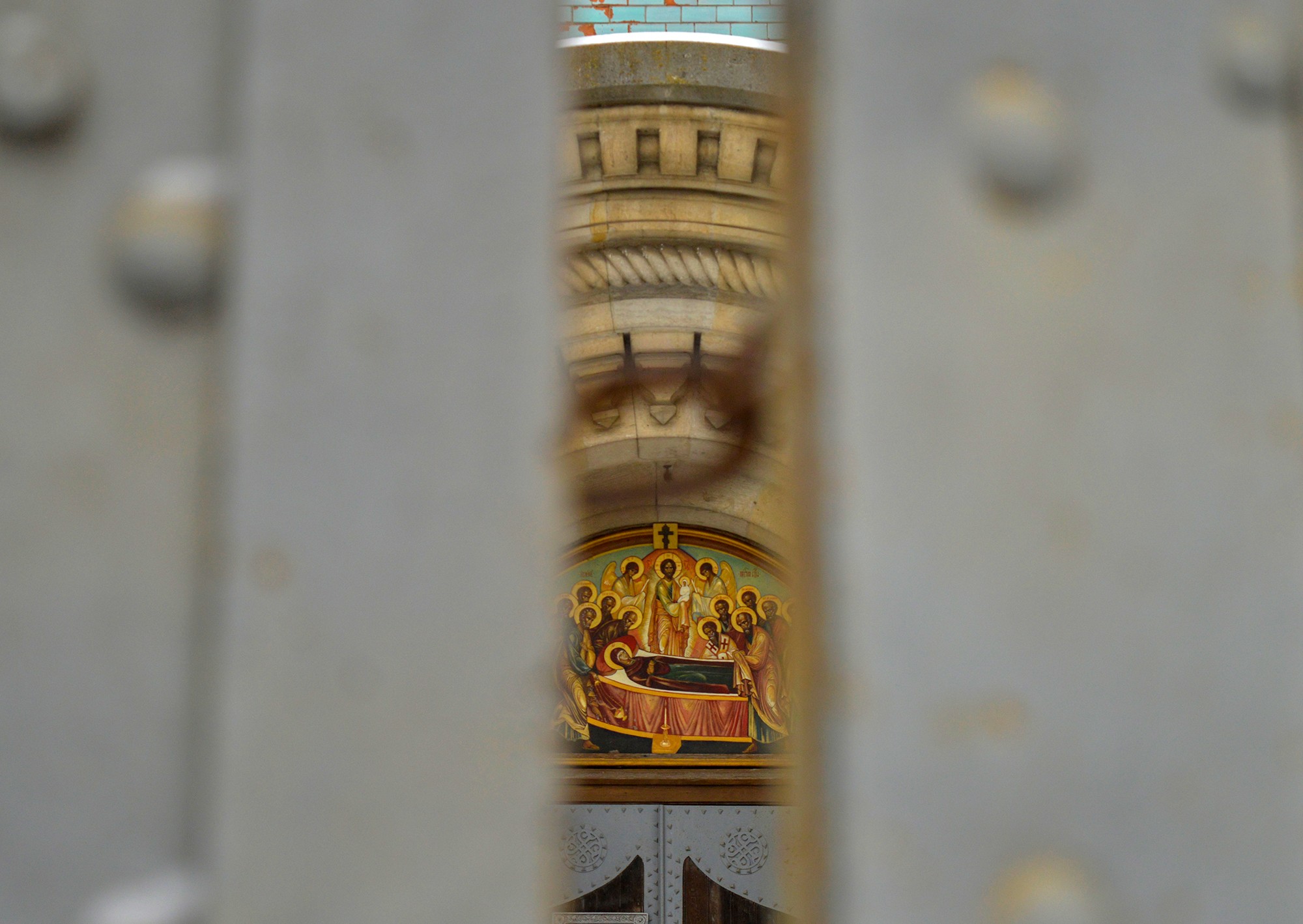
“We are Old Believers. You’ve probably already realized understood that,” she says.
Taïsia came to Bila Krynytsia to serve from Chișinău. That was her lot. She is the only person who lives in the monastery and she takes care of everything by herself. But the decision to let me take her picture is not up to her; she needs the blessing of a priest.
“Are you baptised or do you only think you are?”
“No,” I reply clearly. “I haven’t been dunked three times.”
The foyer is cold and smells like it was freshly remodeled. Construction ended almost a year ago. No one has yet stayed in any of the ten monastic cells.
“I can’t imagine how you live without faith. Our mortal life is hard, but it is only preparation for real life. We will get it when we take off this shirt,” she barely touches her body.
Taïsia starts reciting fragments of the Old Testament. She knows it by heart. Whatever you might ask, she has the answer. But all I wanted to know was if she felt happy with her life in Bila Krynytsia.
“God is an absolute. And what God has said is law. Not what our our parliament accepts today and rejects tomorrow. People are on Earth to learn what God wants from them. We have come to bear our cross.”
Vespers have begun. In winter, services are held in Kozmodemianska Church, which is the first one upon entering the village, as it has a stove. The Assumption Cathedral functions only in summer.
“Can I enter the Assumption Cathedral?” I ask Taïsia.
“Come back in summer.”
They make the sign of the cross during mass with two fingers just like was common before Patriarch Nikon’s reform and bow to the ground. They cross their arms over their breast.
Ustymia is singing. She sings monodically, as is common for Old Believers. There will be four hours of vespers to end the day, and the morning will start again with prayers.
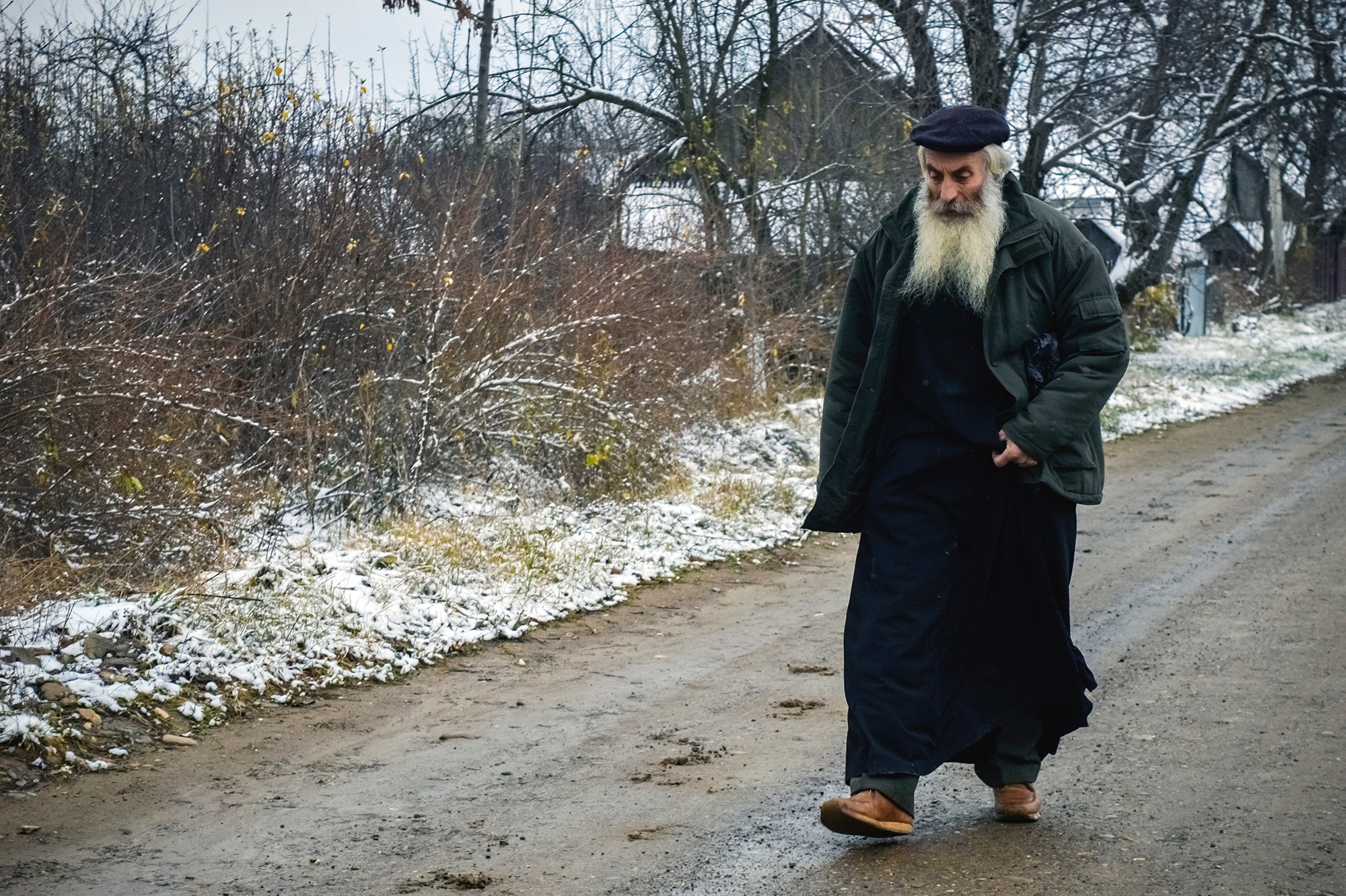
Like everyone else here, she’s not afraid to die.
She’s only scared that Bila Krynytsia will die with them.
But God forbid they let outsiders in.
Translated by Ali Kinsella.
[This publication was created with support of the Royal Norwegian Embassy in Ukraine. The views and opinions expressed in this publication are those of the authors and do not necessarily reflect the official position of the Norwegian government].
Have read to the end! What's next?
Next is a small request.
Building media in Ukraine is not an easy task. It requires special experience, knowledge and special resources. Literary reportage is also one of the most expensive genres of journalism. That's why we need your support.
We have no investors or "friendly politicians" - we’ve always been independent. The only dependence we would like to have is dependence on educated and caring readers. We invite you to support us on Patreon, so we could create more valuable things with your help.
Reports130
More





